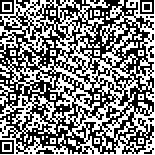| 摘要: |
| [摘要] 目的 了解教育干预前后社区医生对社区获得性肺炎(CAP)的认知状况。方法 以CAP专题讲座对社区医生进行教育干预,教育干预前后对社区医生进行CAP知识问卷调查。问卷调查表根据国内外CAP防治指南设计,共10道选择题,主要包括CAP病原学、诊断和治疗知识。社区医生当场独立完成问卷调查表。结果 教育干预前后分别有60名和56名社区医生完成CAP知识问卷调查。教育干预后问卷回答正确率(72.1%)显著高于教育干预前(43.0%)(P<0.01)。10道问卷调查内容回答正确率,教育干预前后分别为16.7%~65%和46.4%~98.2%。除了2道问卷调查题外,其余8道问卷调查题回答正确率均比教育干预前显著增加。结论 社区医生的社区获得性肺炎认知水平较低,教育干预可以提高其认识水平。 |
| 关键词: 肺炎 教育 社区医生 |
| DOI:10.3969/j.issn.1674-3806.2009.08.36 |
| 分类号:R 563.1 |
| 基金项目:广西壮族自治区卫生厅卫生适宜技术项目(S200817) |
|
| Educational intervention of community acquired pneumonia on general practitioners |
|
HUANG Gui-xiang, QIN Zhi-qiang, LONG Sheng-ze, et al.
|
|
Department of Respiratory Disease, the People′s Hospital of Guangxi Zhuang Autonomous Region, Nanning 530021, China
|
| Abstract: |
| [Abstract] Objective China has seen the updated guidelines for community acquired pneumonia (CAP). It is the objective to evaluate the effect of educational intervention on CAP perception level of general practitioners.Methods General practitioners were given a lecture on CAP as the educational intervention. Prior to and post-lecture, general practitioners were required to answer 10 questions included in a questionnaire about clinical findings, diagnosis and therapy of CAP based on the guidelines. Questionnaires were finished at present, independently.Results Sixty and 56 general practitioners finished the questionnaires prior to and post-lecture, respectively. The percentage of correct answers to the questionnaires increased significantly post-lectures (72.1% vs 43.0%, P<0.01). The correct answers to 10 questions about CAP ranged from 16.7% to 65% and from 46.4% to 98.2%, prior to and post-lecture, respectively. Except for 2 questions, correct answers to the remaining 8 questions increased significantly post-lecture.Conclusion The CAP perception level among general practitioners is not satisfactory and can be improved through the educational intervention. |
| Key words: Pneumonia Education General practitioner |

